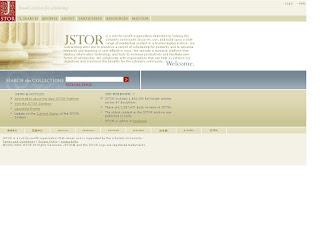Most of you have heard that the SAOUG conference will be on 3-5 June 2008. The registration is now on. Visit http://www.saoug.org.za/ to register and view the prelimenary details of papers and workshops.
The keynote speakers are:
* Derek Law - Head of the Information Resources Directorate, University of Strathclyde.
* Geoff Hoy - Geoff has been associated with UCT libraries for many years, and is now involved with TENET, the tertiary education network which is used by all tertiary academic institutions in South Africa.
* Christof Appel - Christof has presented in the UK, USA, Dubai and South Africa. He has wowed audiences with his entertaining and thought provoking business presentations.
The following workshops will be presented on 3rd of June:
- EVIDENCE-BASED LIBRARY AND INFORMATION PRACTICE (EBLIP): The Basics: What, Why, How, Who and Where
- Practical Presentation Skills for trainers
- THE DEEP END: PLANNING A DIGITAL STRATEGY FOR YOURSELF
These are some of the papers that will be presented on 4-5th June:
- Changing Users: Have They or Should we?
- Training End Users in the Mining Industry
- The Training Monster
- Changing Roles of Libraries and Librarians with Emphasis on the Technology (Working Title)
- Getting Executive Buy-In: The Value of Technology Demonstrators
- Don’t Throw the Baby out with the Bathwater: A Case Study Regarding a News Alerting Service in the Engineering Industry
- Establishing an Online Reference Service
- Life after Graduation Day: The Reality of the Information Industry
- The Institutional Repository Toolbox: How to Successfully Implement an Institutional Repository
- Databases, Institutional Repositories (IR) and Organizational Workflows
- Establishing a Knowledge Commons at the CSIR
- African Journal OnLine: The Journey towards African Learning Translating into African Development
- Digital Scholarship and the Role of the University Library
Other interesting initiative is: ROUND TABLE DISCUSSSION BOX LUNCHES. The topics are:
- Patent Searching Support Group (Facilitator: Louise Mitchell)
- End User Training: Best Practice
- Institutional Repositories
- EBLIP (Evidence Based Library and Information Practice)
- Life after Graduation: the Gap between Theory and Practice
- Mentoring
- Library 2.0
The social event:
Wednesday evening – 4th June : 17:00 – 22:30
Barnyard, Menlyn Shopping Mall for the following show: The Musical tribute to the King – Elvis Presley. “Put on your Blue Suede Shoes, get ready to Shake Rattle and Roll because this show promises to rock both young and old in true Elvis spirit.”
As a member of the SAOUG committee, I hope you will come and have an experience of a lifetime.



